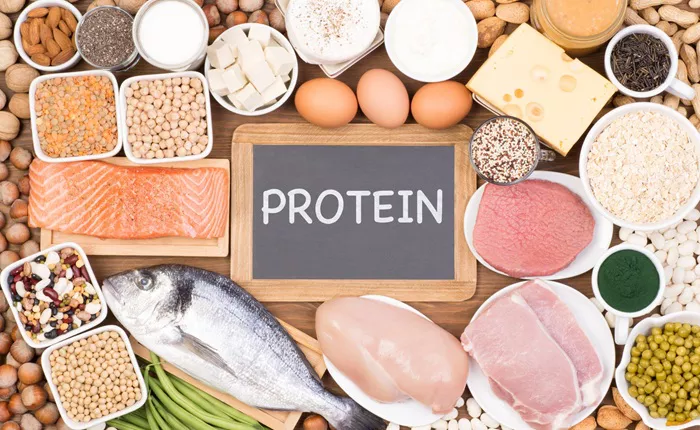NEW YORK — Protein is a hot topic in health and fitness, but how much do we actually need—and is there such a thing as too much? According to nutrition experts, the answer depends on several factors including age, weight, and activity level.
What Is Protein and Why Is It Important?
Protein is made of amino acids and is essential for muscle repair, immune health, and the structure of bones, skin, and blood. “Protein is the main building block for our body,” says Dr. Zhaoping Li, director of the Center for Human Nutrition at UCLA.
Unlike carbohydrates and fats, protein isn’t stored in the body. That means daily intake is necessary to maintain key functions.
How Much Do You Need?
The Dietary Guidelines for Americans suggest women consume 5 to 6.5 ounces of protein foods daily, and men 5.5 to 7 ounces. Another general rule is 0.8 grams of protein per kilogram of body weight—about 54 grams daily for a 150-pound woman.
However, registered dietitian Samantha Cassetty says this is just the minimum. “A higher intake—around 1.2 to 2 grams per kilogram—may be better for supporting muscle, weight management, and healthy aging,” she explains.
Can You Get Too Much?
Too much protein may be risky for those with kidney issues, but it’s generally safe for healthy individuals. In fact, people who are older, very active, or ill may need more than average. Dr. Li advises consulting a nutrition specialist to determine your ideal intake.
Balanced Diet Still Matters
Cassetty warns that focusing too much on protein can push out other nutrients, especially fiber. “More than 90% of Americans fall short on fiber,” she notes. “It’s important to keep a balanced diet.”
Best Protein Sources
Experts recommend whole foods over processed products. Good sources include:
- Chicken, fish, eggs
- Tofu, beans, lentils
- Greek yogurt, cottage cheese
- Tuna, salmon, edamame, chickpeas
While protein powders and bars are convenient, they shouldn’t be daily staples. “All foods can fit, but they don’t fit equally,” says Cassetty. “Whole foods are better for long-term health.”
The Bottom Line
Protein is vital to your health, and most people may benefit from eating a bit more than the minimum. But the key is balance—choose quality sources and don’t forget fiber and other nutrients.
Related topics:


